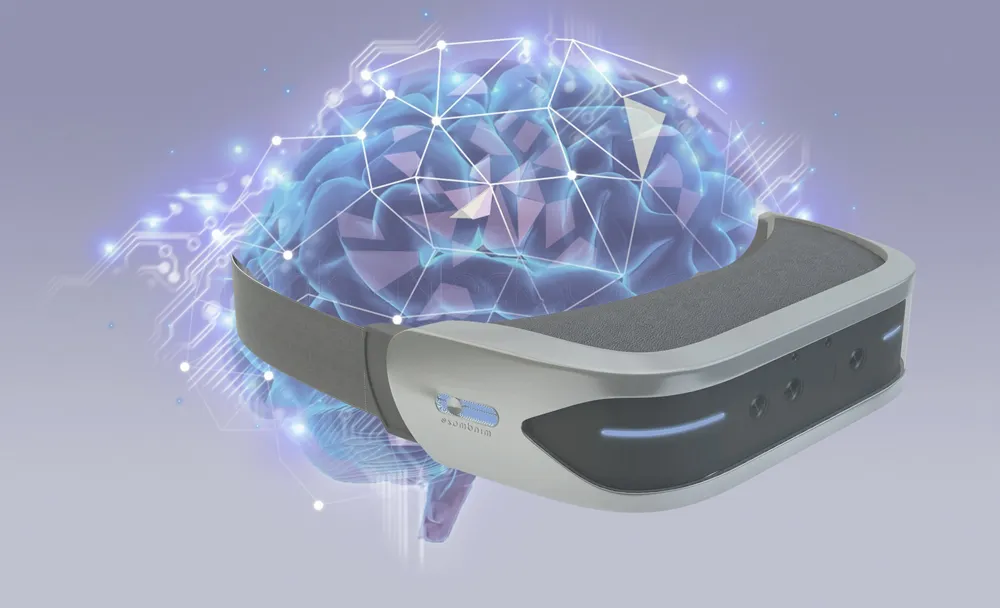Facebook bought Oculus to one day make VR social, but there’s a few hurdles for Mark Zuckerberg’s company and all other VR outlets before it becomes truly convincing. Capturing realistic facial expressions is one such issue, but MindMaze thinks it’s cracked it with MASK.
MASK is a software and hardware solution that doesn’t read your facial expression as you make it, but instead predicts the expression you’re going to make and then relays that to a VR avatar, creating what the company claims is a responsive and convincing system. The platform uses machine learning and biosignal processing to read the electrical impulses in a user’s face and register the expression they’re about to make tens of milliseconds before it appears on your face.
To do this, MindMaze — which raised $100 million in funding last year — has developed a lightweight, “cost-effective” device made of foam that will apparently fit onto any VR headset from Google Daydream to the HTC Vive. A price and possible release date for the kit have not been announced.
It certainly sounds like a promising system but we haven’t been able to test it out for ourselves yet. We’d be eager to see just how accurate MASK is with its predictions, as we’ve used some facial recognition systems in the past that have struggled to properly read a smile or eye movements.
MindMaze is now licensing MASK to VR developers, suggesting possible initial applications in multiplayer gaming experiences and other social VR apps. Back at Oculus Connect 3, though, Oculus’ Micheal Abrash spoke about the importance to creating convincing virtual humans while Zuckerberg showcased a look at Facebook’s own social VR software that used cartoonish avatars. The difference between possibility and theory in VR is striking right now, but solutions like MASK could help bridge the gap just a little in the years to come.




























